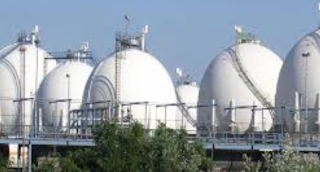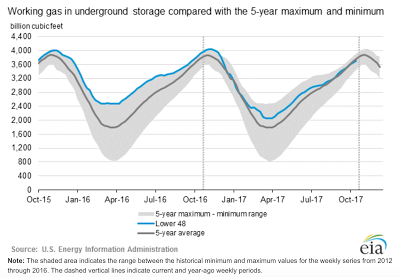Natural gas has always been a volatile market and subject to weather shocks; however, over the last few years the volatility and weather shocks have been dampened because of the high storage inventory levels. Monthly volatility has declined by at least 1/3 over the last three years as inventories remained high.
Inventories serve as a cushion for any shock, but this may be changing according to Matt Piselli who manages a commodity fund (MJP Strategy) for Launchpad Capital Management. Matt has been running money for the Tudor organization and prior as the head trader for Gresham, so he has a good perspective on commodity issues.
His view is that LNG exports is starting to weigh on the excess inventory now that natural gas is leaving the country at a quickening pace. LNG exports from Sabine Pass have increased from zero to 12% of the region’s production in the just 18 months. For these flows to reverse, domestic prices have to reach global rates. Coupled with combined-cycle gas turbines (CCGT) replacing coal as base-load for utilities, there may be a shift in gas elasticities. This will generate a greater price impact for any demand shock.
The important of this change should not be underestimated even with current low prices and inventories within five-year ranges. Research consistently shows that lower inventory levels are coupled with more volatility and whippiness in spreads. A weather shock will create more trading opportunities. This higher natural gas volatility will allow skilled traders to be better rewarded this winter.


